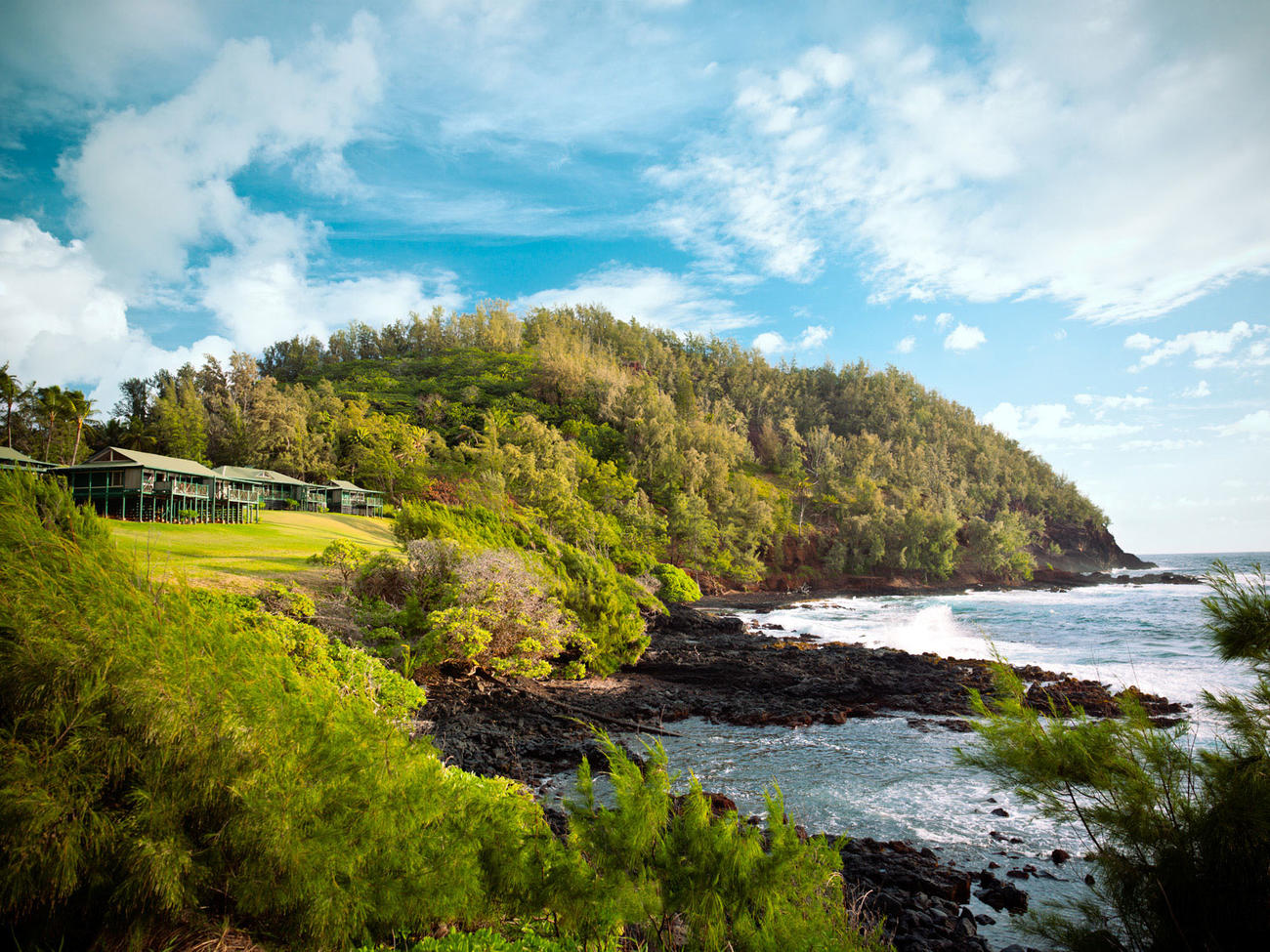
Experience the Magic of Hana

Thomas J. Story
Are you in Hana?, a text bleeps in. “Sorry,” I say to Mapuana, my guide, while powering off my phone, something I haven’t bothered to do since arriving at Travaasa Hana on Maui’s eastern shore, where cell service blows in and out with the ocean breezes.
Mapuana smiles, unaffected by the disturbance. “Now I am going to lead us in a Hawaiian chant,” she explains, asking the kupuna, or elders, for guidance. She shifts into the Hawaiian language. She closes her eyes, so I close mine. The birds twitter, the wind gusts are scented with plumeria, and humidity hangs in the air. All are signs, in my naive city-girl opinion, that Mapuana is conjuring invisible forces, who may, I fear, arrive and ask me what I wish for. I’ve heard of the magic of Hana—I’ve even come here intrigued by it—but I’m well over the age of being able to blithely blurt out a wish (“I wish I were a ballerina,” “I wish for a million dollars”), each one fraught with consequences. Or so I thought before I drove here on the Road to Hana two days ago.
Slowing Down
The road, a curvy “two” laner, rambles east from the airport about 68 miles, crossing single-lane bridges and passing waterfalls, bamboo forests, and natural pools. With its top speeds averaging 25 mph, I had plenty of time to think, mostly about banana bread (thanks to all the handmade signs hanging from trees), about whether it’s worse to be a driver or a passenger (depends on your control issues), and what your driving style says about your ego (impolite drivers don’t use turnouts). Nearly two hours later, I came upon the ink-dot town of Hana: a Hawaiian Bali Hai framed by the slopes of a dormant volcano, with a prim and proper 1800s church, a ballfield, and a bay of fishermen, all set within an edible forest of taro, breadfruit, banana, mango, and papaya. Surely one element of Hana’s magic is the security of knowing you’ll never go hungry.
I pulled into the porte cochere of the hotel a little frazzled from my journey of many weather systems. Rain. No rain. Rain. Mist. No rain. Rain. Sun. Rainbow. Then the weirdest thing—perhaps a bit of magic—happened. I exited my car and felt incredibly slowed down. As if I were walking through pudding. This otherworldly fantasy continued when I passed a banana tree branch, heavy with fruit, hanging from the lobby rafter. I did a double take.
